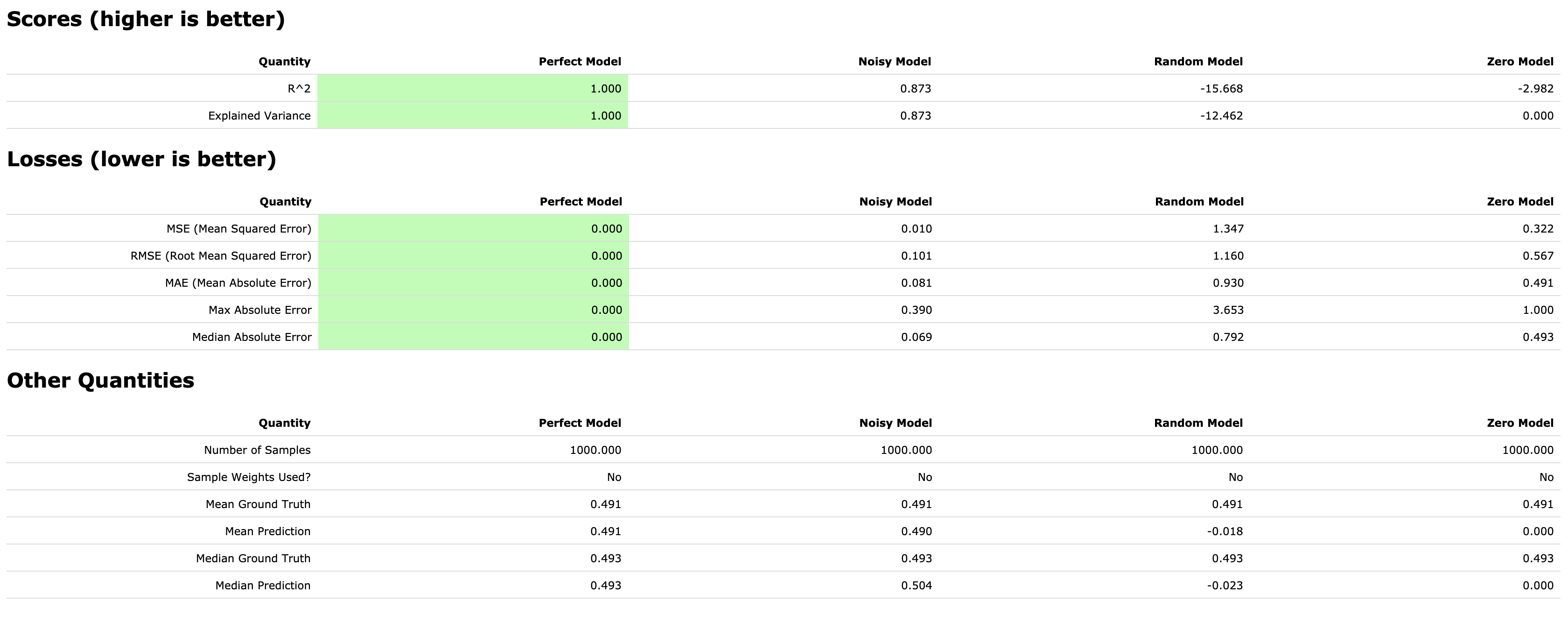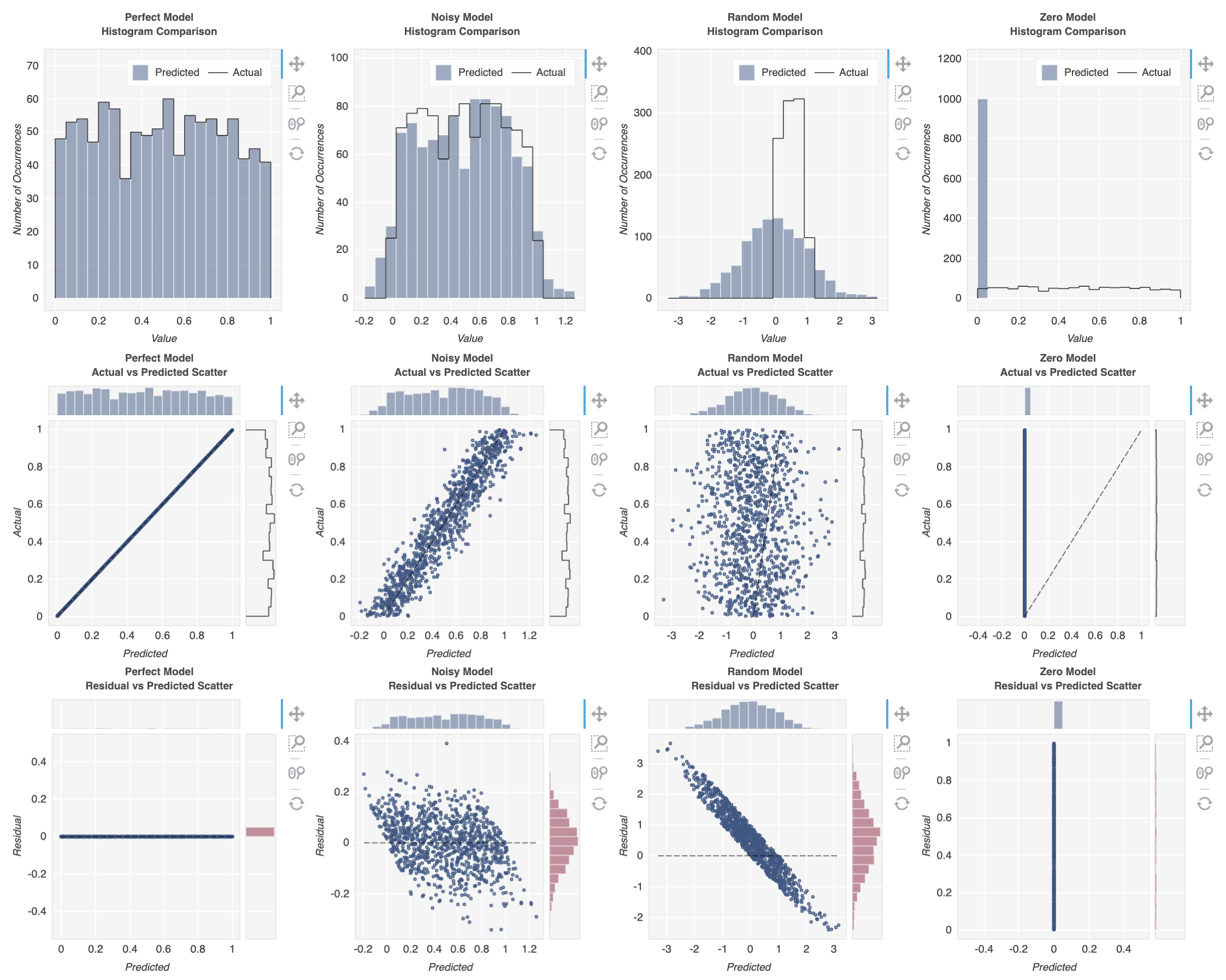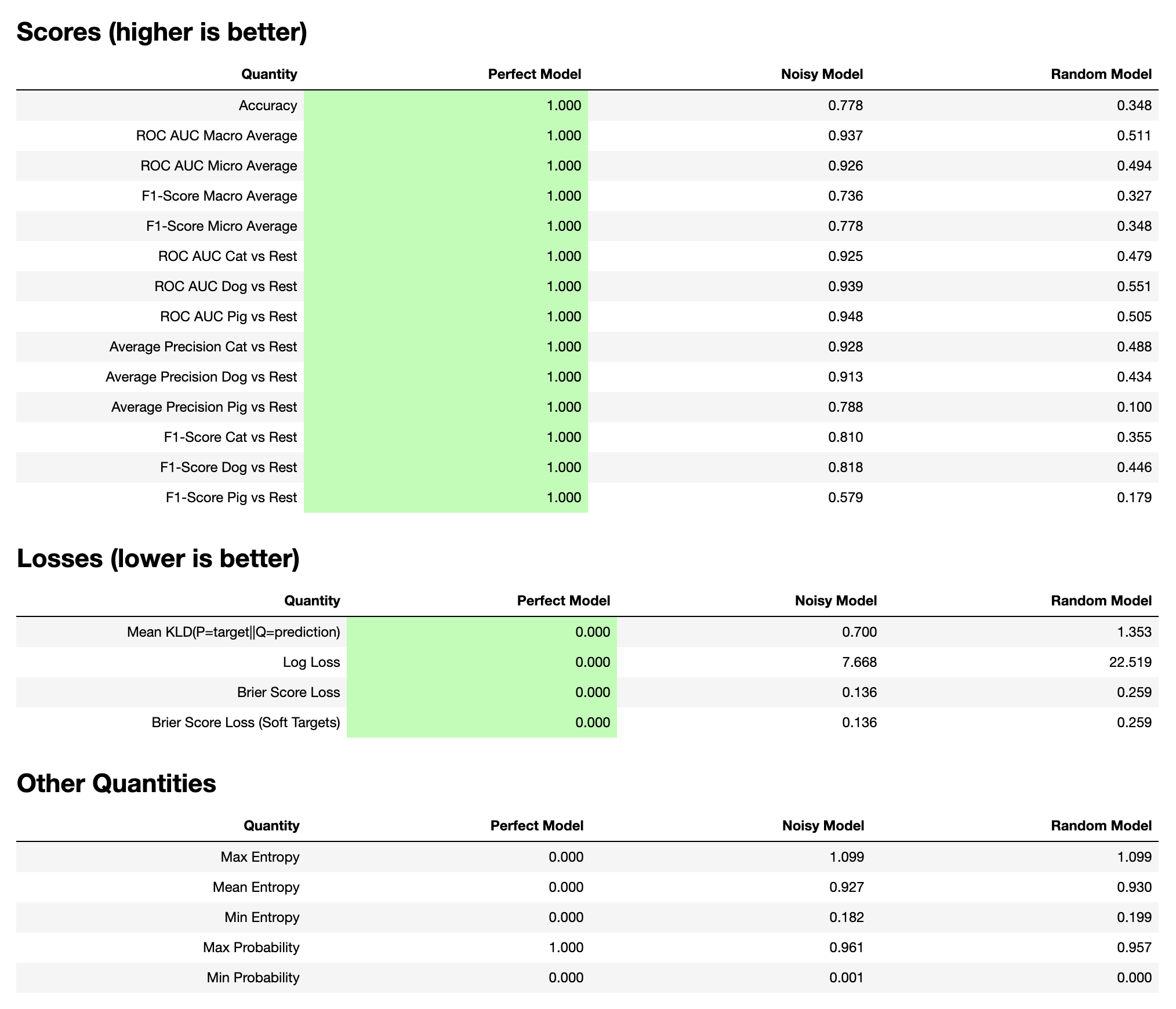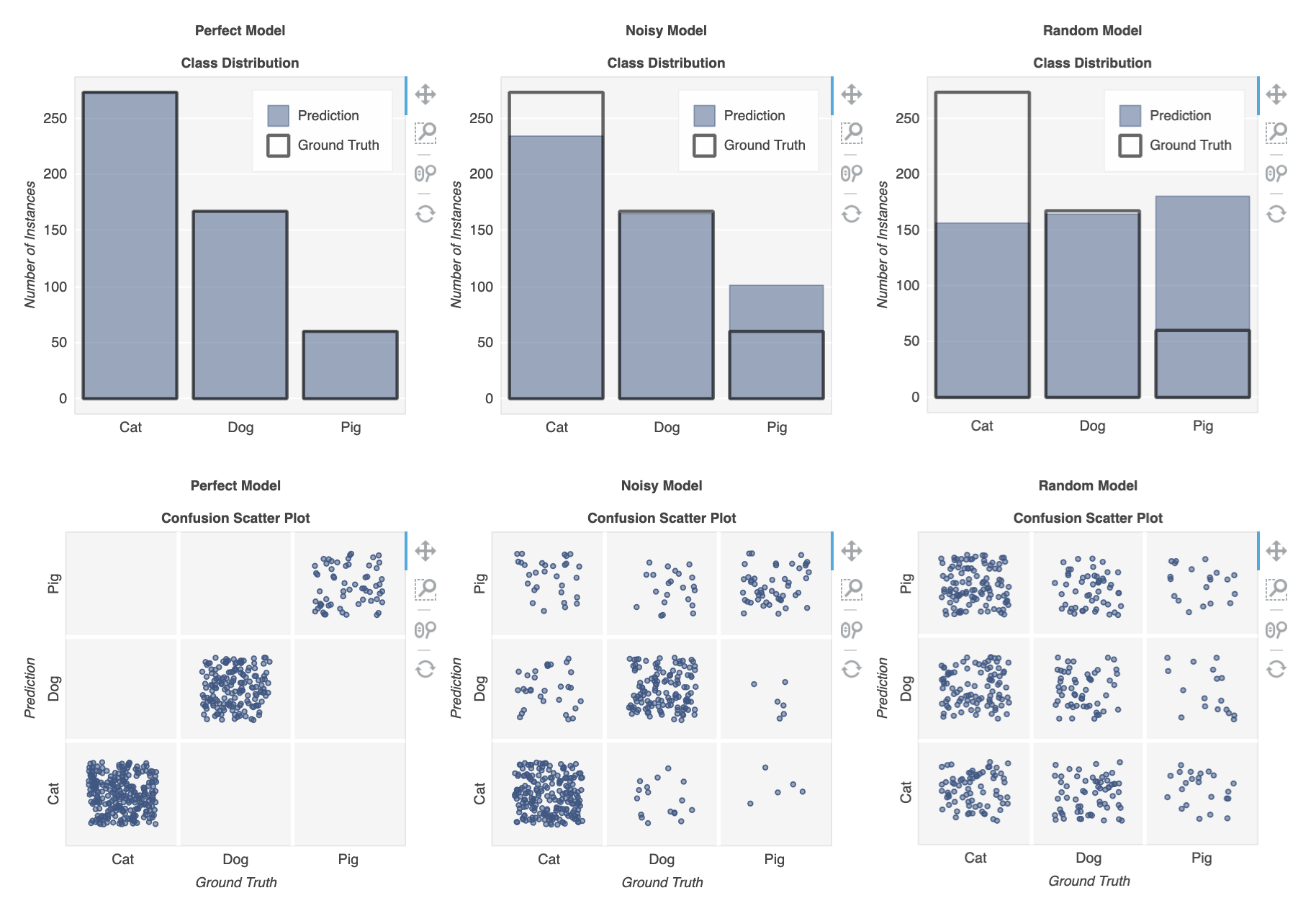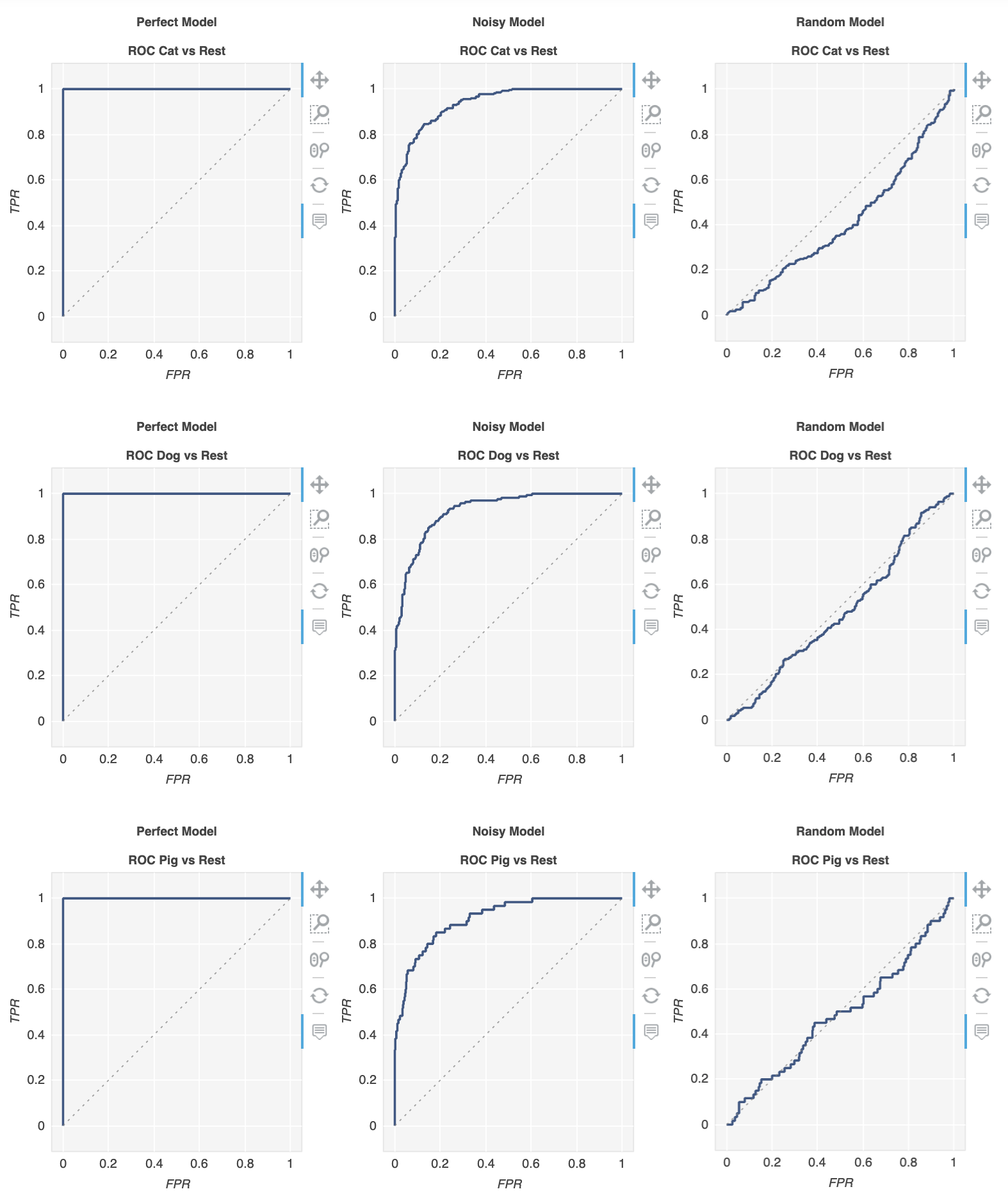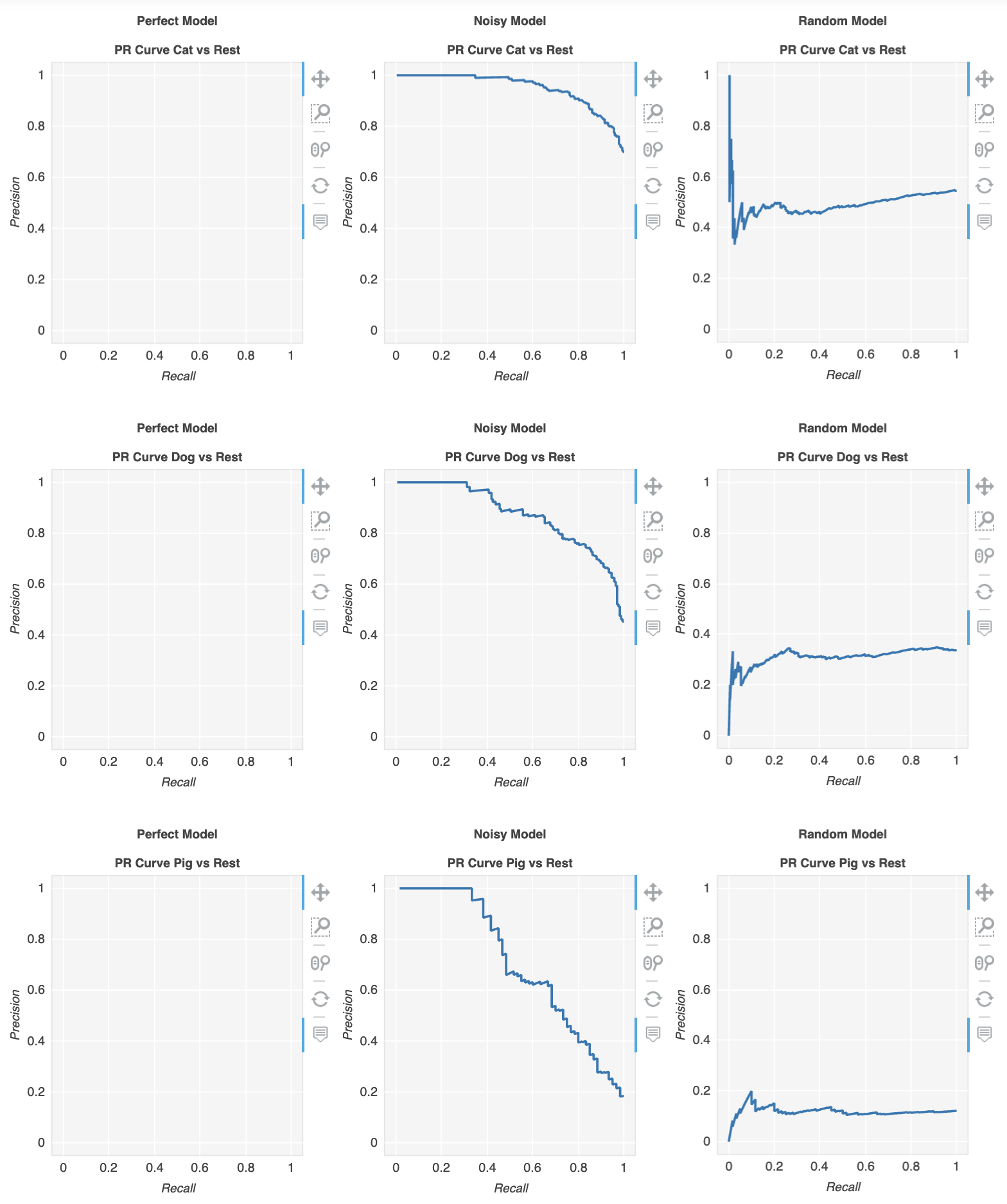Measure, visualize, and compare machine learning model performance without the usual boilerplate. Breaking API improvements to be expected.
$ pip install metriculousOr, for the latest unreleased version:
$ pip install git+https://github.com/metriculous-ml/metriculous.gitClick to see more code
import numpy as np
# Mock the ground truth, a one-dimensional array of floats
ground_truth = np.random.random(300)
# Mock the output of a few models
perfect_model = ground_truth
noisy_model = ground_truth + 0.1 * np.random.randn(*ground_truth.shape)
random_model = np.random.randn(*ground_truth.shape)
zero_model = np.zeros_like(ground_truth)import metriculous
metriculous.compare_regressors(
ground_truth=ground_truth,
model_predictions=[perfect_model, noisy_model, random_model, zero_model],
model_names=["Perfect Model", "Noisy Model", "Random Model", "Zero Model"],
).save_html("comparison.html").display()This will save an HTML file with common regression metrics and charts, and if you are working in a Jupyter notebook will display the output right in front of you:
Click to see more code
import numpy as np
def normalize(array2d: np.ndarray) -> np.ndarray:
return array2d / array2d.sum(axis=1, keepdims=True)
class_names = ["Cat", "Dog", "Pig"]
num_classes = len(class_names)
num_samples = 500
# Mock ground truth
ground_truth = np.random.choice(range(num_classes), size=num_samples, p=[0.5, 0.4, 0.1])
# Mock model predictions
perfect_model = np.eye(num_classes)[ground_truth]
noisy_model = normalize(
perfect_model + 2 * np.random.random((num_samples, num_classes))
)
random_model = normalize(np.random.random((num_samples, num_classes)))import metriculous
metriculous.compare_classifiers(
ground_truth=ground_truth,
model_predictions=[perfect_model, noisy_model, random_model],
model_names=["Perfect Model", "Noisy Model", "Random Model"],
class_names=class_names,
one_vs_all_figures=True,
).display()This project uses poetry to manage
dependencies. Please make sure it is installed for the required python version. Then install the dependencies with poetry install.
A Makefile is used to automate common development workflows. Type make or make help to see a list of available commands. Before commiting changes it is recommended to run make format check test.




